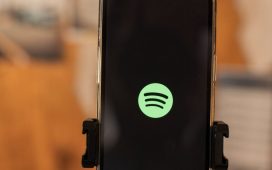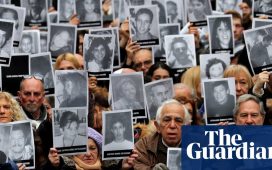It sounds like the build-up to an illegal rave. Invitations are passed by word of mouth to trusted people. Minimal information – time, directions – is quietly given with pleas for discretion. Once everyone is assembled in a barn on a remote farm – “away from prying eyes,” says the organiser – it begins.
This is no rave, but an English church service under lockdown, and the organiser is a Protestant pastor. The Christians who will gather illegally in the west of England on Sunday morning – as they have for the past two Sundays – will pray, read from the scriptures, sing hymns and listen to a sermon.
“We’ve been holding clandestine services since this lockdown began,” the pastor told the Observer, speaking on condition of anonymity. “It feels weird for us to act this way. People have said it feels more like an underground church in China.
“The fact that we have to sneak around to worship God, in fear of criminal prosecution, is alarming. But we do what we have to do.”
According to church leaders the Observer has spoken to, an increasing number of congregations are breaking the law in order to worship together, an activity banned under current restrictions. Some are moving to different premises, others meeting covertly in regular church buildings.
Last Sunday police intervened at the Angel evangelical church in Clerkenwell, north London, after its pastor publicly announced his intention to hold a service. In Gedling, Nottinghamshire, two arrests were made at the Mustard Seed Christian bookshop and cafe after a gathering of up to 50 people last weekend.
“I never thought I’d say this in Britain, but churches are going underground. These are not isolated cases – and the longer it goes on, more churches will join the movement,” said Andrea Williams, chief executive of Christian Concern, a conservative evangelical group, and a member of the Church of England’s ruling body, the general synod.
Andrew, a minister at a London church, said: “We’ve carried on as normal [during the current lockdown]. We’re holding a couple of services each Sunday, with about 160 people attending in total.
“We’ve asked people to be discreet. This is not a stunt we’re pulling, we’re not seeking publicity. It was a big decision – I’ve never practised civil disobedience before.”
The government had overreached itself, he added. “I don’t believe the government has the authority to tell the church of Jesus Christ that it can’t gather for worship. They have provided no evidence, they just classed us as non-essential. But we believe worship is the most essential thing in life.
“We answer to a higher authority. When there is a contradiction between the laws of the country and God’s command, the Bible is very clear that God’s command must win out.”
Regan King, the pastor of the Angel church, plans to hold further services with up to 15 people on Sunday despite police intervening to prevent a larger service last weekend. “We’re not law breakers, we want to comply with the law as much as possible,” he said. But, he added, there was a “greater law” than that made by the state.
“Since I went public, I have been contacted by many preachers, pastors and leaders who are continuing to hold services – and many others who wish they could. Every church takes its own decision.”
Earlier this month the Metropolitan police wrote to faith leaders in London reminding them of lockdown restrictions, which say places of worship can open for “individual prayer”. It adds: “This is prayer that is not congregational or communal and so these cannot be led by a religious leader.”
The ban on communal worship in England has been challenged by the leaders of the Church of England, the Catholic church and Orthodox Judaism, along with Muslim, Hindu, Sikh and Pentecostal representatives.
They wrote a joint letter to Boris Johnson saying there was “no scientific justification for the wholesale suspension of public worship”. Despite their opposition, most faith leaders are urging compliance.

A legal challenge has been launched by more than 120 church leaders who claim the ban breaches article 9 of the European convention on human rights, which protects the right to freedom of religion. An application for judicial review, backed by Christian Concern, is due to have an initial hearing before a high court judge on Monday.
“Never before have churches been forced to comply [with closure orders] or be criminalised,” said Williams.
Church leaders told the Observer they followed guidelines on social distancing and the wearing of face masks during illegal services. They acknowledged it would be distressing if anyone became ill with Covid following a service. But, said Andrew, “the virus is not within our control. Coming to our church building is safer than going to a supermarket.”
Graham Nicholls, director of Affinity, a network which represents more than 100,000 Christians, said: “In evangelical circles, some believe closure [of churches] is a wise move to help protect the NHS and public health, while others are convinced that the closures are unlawful and unreasonable, yet seek to obey the restrictions.
“Some go further and suggest Christians meet regardless, particularly as there has been no evidence presented to suggest that places of worship are responsible for virus spreading.”
It was encouraging to see church leaders who were “willing to take a stand, irrespective of the consequences”, he added.
According to the west of England pastor, “as Christians, we want to be the best citizens we can. We don’t want to be disobedient, but we’re being forced into a position where we either have to go with our religious convictions or go against our consciences and beliefs and submit to the state. That’s the situation we’re in.”






